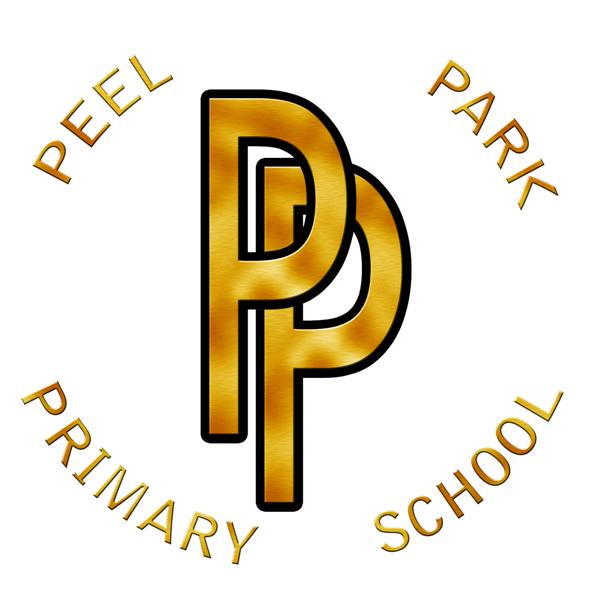English
English at Peel Park
Vision
At Peel Park Primary School, we believe that English is a fundamental life skill. We inspire children to become creative and confident communicators, readers and writers, leading to improved opportunities. We strive to provide high quality, engaging lessons that encourage children to develop a lifelong appreciation for literature and language. Through our bespoke curriculum, children at Peel Park experience a wide range of purposeful texts, which enriches and broadens their experiences. Through meaningful teaching and learning, children are encouraged to value their own work. We aspire for our pupils to leave Peel Park with the drive and enthusiasm to continue their literary journey.
Reading provides the gateway to access the wider curriculum and is the most important life skill children develop as part of their education. Through our reading curriculum children develop a broader vocabulary, increased general knowledge and a better understanding of other cultures.
Written communication is also an essential element of expression; the ability to articulate oneself through the written word provides an opportunity to share knowledge in a meaningful and effective way. Writing facilitates reflection, expression and enables individuals to compose their thoughts. In an electronic world where verbal communication has become less frequently used, learning to write in a cohesive, structured manner allows individuals to convey their thoughts effectively.
Children start to discover how the English language has developed over time and has contributed to our economy, society and culture. English is integral to all aspects of life and provides children with vital life skills.
Intent
Every Child a Reader. Every Child a Writer.
Our aim is to ensure that every child can speak, read and write confidently and fluently so that they can communicate their ideas and develop intellectually, socially, emotionally and culturally, ready to begin the next phase of their education and flourish as life-long learners.
Our English curriculum is based on the National Curriculum objectives and includes Reading, Writing, Spoken Language, Spelling, Punctuation, Grammar and Handwriting. Our ‘literacy-rich’ curriculum aims to motivate and inspire our children, through progressive and well-sequenced learning journeys, that engages and challenges all learners and provides them with a high standard of language and literacy skills. Reading, Writing and Spoken Language are embedded across the entire curriculum, enabling our children to embed these skills successfully across a range of subject areas.
English contributes to many other subjects, as a form of communication, and we value the importance in giving our children the opportunity to apply and use their reading and writing skills across the curriculum and in real life contexts.
Implementation
Reading
Beginning in the Early Years Foundation Stage and continuing into Key Stage One our children are exposed to the Phonics Shed Programme delivered daily. In Reception, the alphabetic code is emphasised so that pupils rapidly learn sounds and the letter, or group of letters, they need to represent them. Pupils have frequent practice of reading high frequency words with irregular spellings (common exception words).
Pupils in the EYFS and KS1 read books that are closely matched to their increasing knowledge of phonics and the common exception words. This enables our children to experience success and gain confidence when reading. Re-reading and discussing books support their increasingly fluent decoding. Alongside this, we read a wide range of stories, poems and non-fiction texts to pupils, who are soon able to read these themselves. Once children are proficient in word reading, they begin to develop their reading fluency and comprehension skills.
Children in Y1 and beyond, continue to have daily whole class reading sessions which focus primarily on, encouraging a love for reading, immersing in a text, practising reading fluency and developing reading comprehension skills. During whole class reading sessions pupils use reciprocal reading techniques when engaging with written or media stimuli, these include fiction, non-fiction and poetry genres. We promote reading aloud and performing to others to develop children’s oracy. We study vocabulary to advance children’s language acquisition, develop inference and deduction by exploring and answering a variety of different comprehension questions linked to the National Curriculum reading objectives.
Writing
Embedding the alphabetic code early in a child’s education means that pupils quickly learn to write simple words and sentences. Our youngest children are encouraged to compose each sentence orally until they are confident to write independently. The quality of the vocabulary they use in their writing reflects the language they are exposed to through experiencing a book-based curriculum and print rich environment.
Children are taught to write for meaning with lots of opportunities to write for different audiences and purpose. The stimulus to write is provided by carefully selected texts which complement the wider curriculum. Our children benefit from observing quality modelled, shared and guided writing both as a whole class or part of a small group. Grammar and Punctuation objectives are weaved into the English writing sessions and taught discreetly.
Impact
Children at our school enjoy reading and they can discuss books with interest. Children enjoy writing and use the features of a range of text types accurately, writing for different audiences and purposes. Our children are proud of their work. The progressive nature of our English curriculum allows for revisiting and embedding the features of a genre this has provided opportunities to develop children’s specific language and vocabulary to each text type.
